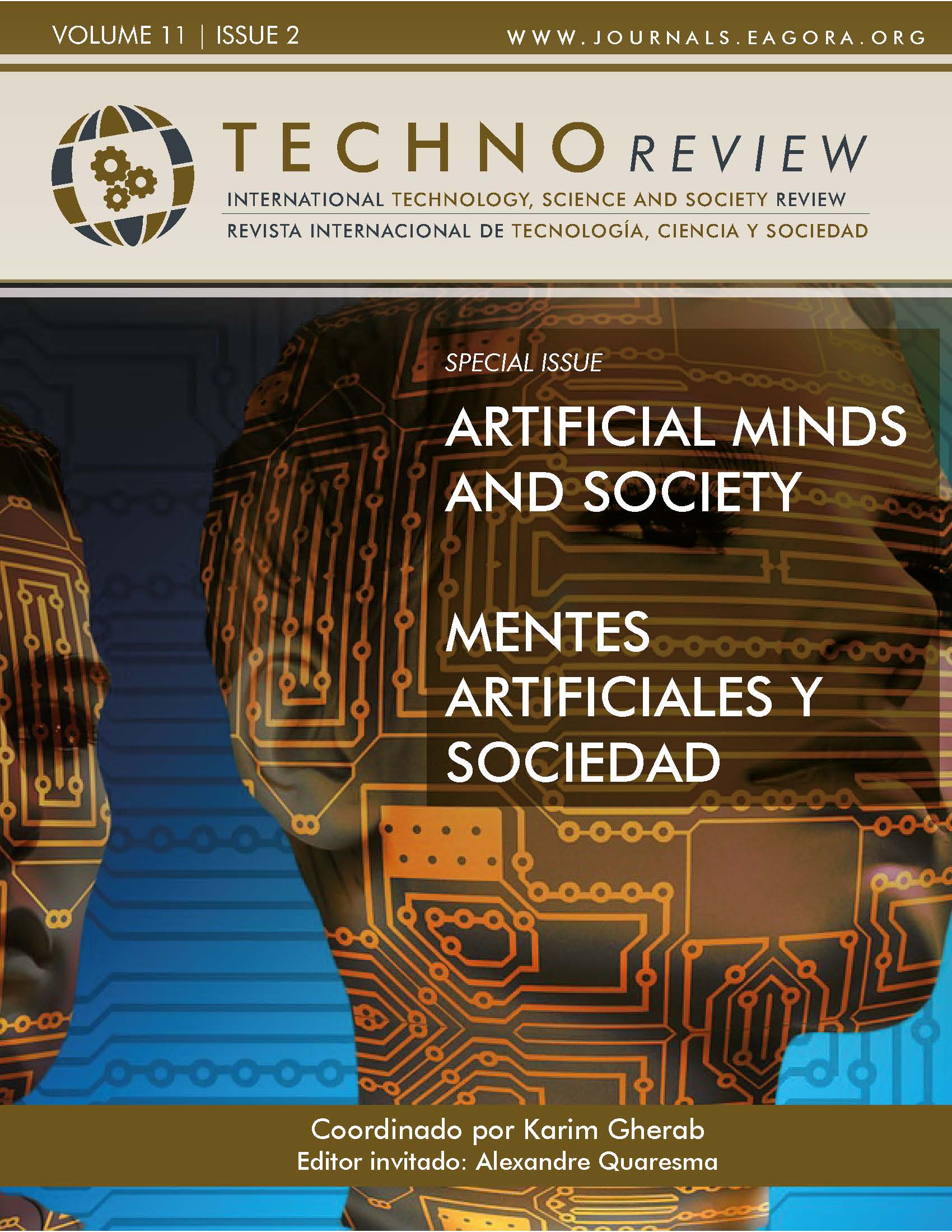Evolução da Gestão de Projetos na Economia Digital
DOI:
https://doi.org/10.37467/gkarevtechno.v11.3233Palavras-chave:
Gestão de Projetos; Economia Digital; Quarta Revolução Industrial; Green Project Management; SustentabilidadeResumo
As grandes mudanças provocadas pela Transformação Digital, em contexto de Economia Digital, estão a acontecer rapidamente. A inovação tecnológica tem grande impacto na forma como gerimos projetos. Os Gestores de Projetos devem ter um perfil adequado, com capacidade de associar a inteligência emocional e a consciência cultural às suas capacidades técnicas, tirando vantagem da utilização das novas tecnologias, como a inteligência artificial, Big Data e outras, com o objetivo de aumentar a probabilidade de sucesso dos projetos e contribuir com valor acrescentado para a economia, meio ambiente e sociedade. Há que considerar, também, a evolução do antigo modelo “triple constraint” para um modelo mais complexo proposto pelo Green Project Management para ajudar a garantir a sustentabilidade. Neste contexto, surge a questão de qual a melhor abordagem a seguir no desenvolvimento de um novo projeto, existindo hoje, para além das abordagens tradicionais preditivas e das abordagens ágeis, as recentes abordagens híbridas.
Referências
Aoun, J. E. (2017). Robot-Proof: Higher Education in the Age of Artificial Intelligence. MIT Press.
Bolick, C. (2019). How can Project Managers Prepare for the Fourth Industrial Revolution? Northeastern University. https://bit.ly/2B5b2gD
Cabeças, A. (2018). Apontamentos de Gestão de Projetos. 5th edition. A. Angels.
Cabeças, A., & Silva, M.M. (2021). Project Management in the Fourth Industrial Revolution. TECHNO REVIEW International Technology Science and Society Review, 9(2), 79-96. https://journals.eagora.org/revTECHNO/issue/view/261.
Costa, H. & Caramelo, A. (2021). Spot your Map. FLEKS Hybrid Business Model. https://fleksmodel.com/blog/ola-mundo-4/.
Dowling, K. (March 15, 2014). Surviving Disasters in Project Management: An Interview with Dr. Harold Kerzner. Huffpost. https://bit.ly/3oRKXdJ
Goleman, D. (1995). Emotional intelligence. Bantam Books.
Goodwin, T. (2015). In the Age of Disintermediation the Battle is all for the Consumer Interface. TechCruncb. https://tcrn.ch/3Q1El8j
GPM (2013). PRiSMTM Methodology. https://gpm-emea.org/gpm/prism-methodology/.
GPM (2019). The GPM P5™ Standard for Sustainability in Project Management Version 2.0. https://www.greenprojectmanagement.org/the-p5-standard.
Grey, A. (2016). The 10 skills you need to thrive in the Fourth Industrial Revolution. World Economic Forum. https://bit.ly/3Q1EybB
Griffiths, F., & Ooi, M. (2018). The Fourth Industrial Revolution — Industry 4.0 and IoT. IEEE Instrumentation and Measurement Magazine, 21(6), 29-43.
IPMA (2015). Individual Competence Baseline for Project, Programme Portfolio Management. 4th version, International Project Management Association, IPMA ICB.
IPMA (2016). Organisational Competence Baseline for Developing Competence in Managing by Projects. Version 1.1. International Project Management Association. IPMA Global Sandard, IPMA OCB.
ISO (2010). ISO 26000:2010 Guidance on social responsibility. International Organization for Standardization.
Kerzner, H. (2006). Project Management, A Systematic approach to planning, Scheduling and controlling (9th edition). John Wiley & Sons, Inc.
KPMG, AIPM, & IPMA (2019, Outubro). The Future of Project Management: Global Outlook 2019: Summary report. KPMG International Cooperative. https://bit.ly/3P2bn71
Marques da Silva, M. (2019). Os desafios da 4ª Revolução Industrial na Empregabilidade e no apoio às Pessoas Vulneráveis. Valores, Ética e Responsabilidade (VER). https://bit.ly/3bsXYYa
Melanima, L. (2018, 2 de Janeiro). Quarta Revolução Industrial e o Gestor de Projetos 4.0. LinkedIn. https://bit.ly/3QBMYXp
Meyer, T. (2020). IDC FutureScape: Western Europe Digital Leader 2020 Predictions. IDC FutureScapes 2020. IDC. https://bit.ly/3bwi6bP
Project Management Institute (2013). A Guide to the Project Management Body of Knowledge: PMBOK Guide (5th Edition). Project Management Institute, Inc. https://bit.ly/3zzxVXh
Project Management Institute (2018). Pulse of the Profession 2018: Success in Disruptive Times. Project Management Institute, Inc. https://bit.ly/3SrxWoK
Project Management Institute (2019). PMI’s Pulse of the Profession. The Future of Work Leading the Way With PMTG. Project Management Institute, Inc. https://bit.ly/3SqL9hr
Rainai, Z., & Kocsis, I. (2017). Labor market risks of industry 4.0, digitization, robots and AI, Proc. of 2017 IEEE 15th International Symposium on Intelligent Systems and Informatics (SISY), Subotica.
Rogers, D. (2016). The Digital Transformation Playbook. Rethink Your Business for the Digital Age. Columbia University Press.
Santos, E. (16 fevereiro, 2021). Novos desafios da gestão de projetos para surfar a onda de transformação digital. Porto Business School. https://bit.ly/3BOrYZj
Schwab, K. (14 de Janeiro, 2016,). The fourth Industrial Revolution: what it means, how to respond. World Economic Forum. Switzerland. https://bit.ly/3QhA5kS
Schwab, K. (2016). The fourth Industrial Revolution. World Economic Forum.
Trentim, M. [Mario Trentim - Gestão de Projetos]. (10 de septiembre de 2020). WEBINAR: FLEKS Hybrid Business Model - Modelos, Transformação e Gestão Híbrida de Projetos [Video]. Youtube. https://www.youtube.com/watch?v=6jMHGEk9lu8
UNCTAD (2019). Digital Economy Report 2019 - Value Creation and Capture: Implications fot Developing Countries. United Nations. https://bit.ly/3StSxsj
Wagner, R. (13 de Fevereiro, 2017,). The Fourth Industrial Revolution … and what it means for project management! International Project Management Association (IPMA). https://bit.ly/3bvsFM6
Downloads
Publicado
Como Citar
Edição
Seção
Licença
Os autores/as que publicam nesta revista concordam com os seguintes termos:
- Os autores/as terão os direitos morais do trabalho e cederão para a revista os direitos comerciais.
- Um ano após a sua publicação, a versão do editor estará em acesso aberto no site da editora, mas a revista manterá o copyright da obra.
- No caso dos autores desejarem asignar uma licença aberta Creative Commons (CC), poderão a solicitar escrevendo a publishing@eagora.org







